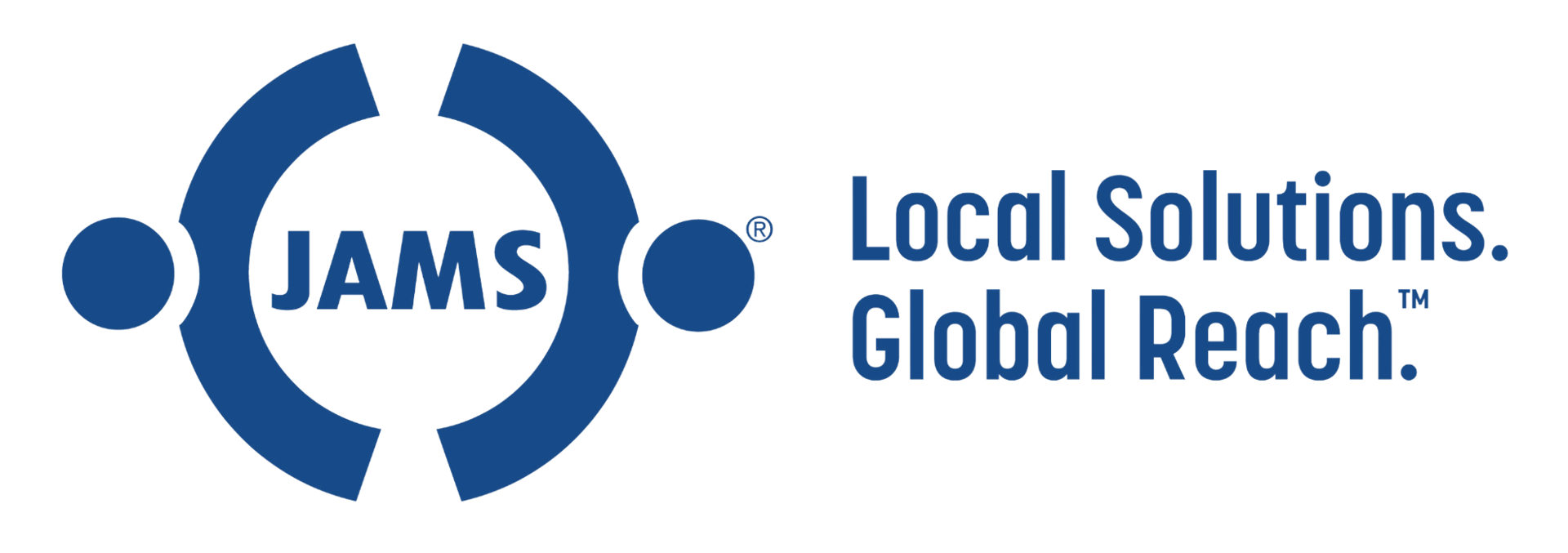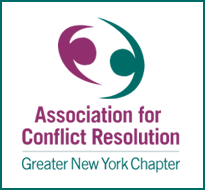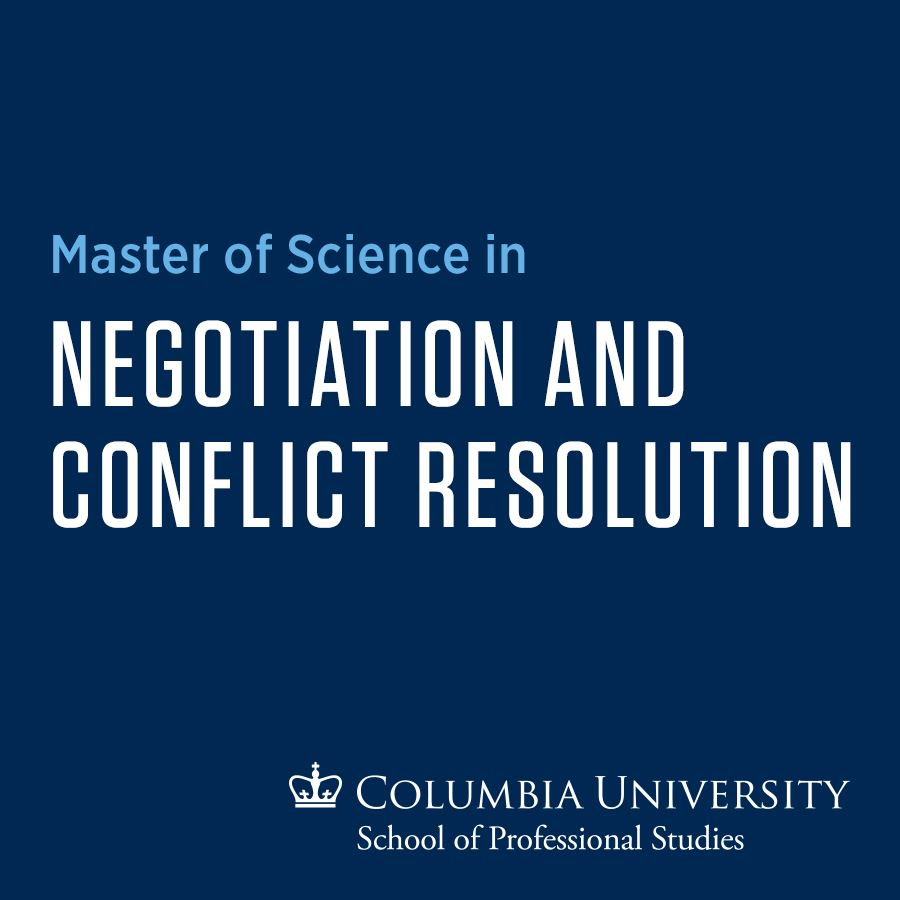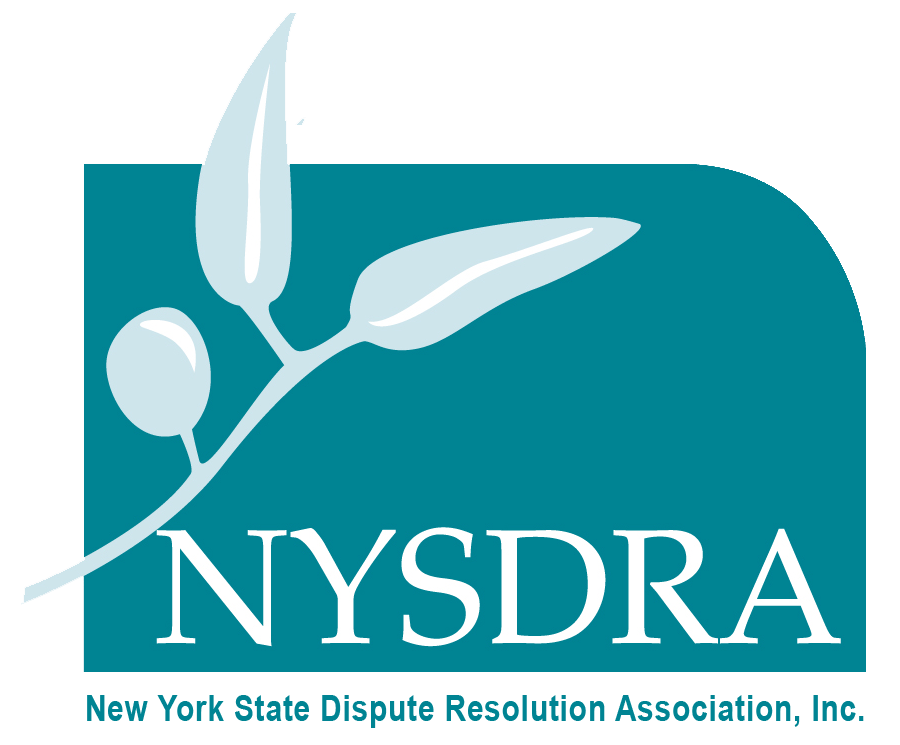|

| TIME | WEDNESDAY, MAY 31 |
| 9:00am |
Disrupting Eviction: Radical Neutral Advocacy and 21st Century Access to Justice (Presented by Roger Moss, Carole Conn, Esmail Rahimian) |
| 9:55am |
The Evolution of Leadership and the Workplace (Presented by Dr. Robyn Short) |
| 10:50am |
Pace and Confluence: Exploring the Role of Nature in Peacemaking (Presented by Dr. Jennifer J. Wilhoit) NOTE: Please bring a journal, pens, and at least one meaningful nature object to this session. |
| 12:15pm |
Workplace Culture and the Role of the Ombuds (Presented by Kira Nurieli) |
| 1:40pm |
The Role of Technology in Mediation: Understanding Attitudes and Practices among Mediators (Presented by Mnotho Ngcobo with Gary Doernhoefer) |
| 2:30pm |
Conflict Coaching for Systems Conflicts (Presented by Tricia Jones, PhD) |
| 3:40pm |
Challenges in Parenting Plans: Interventions from Dispute Resolution Professionals (Presented by Alexia Georgakopoulos, Ph.D., Lizyvette Ramos, Ph.D.(c), Toran Hansen, Ph.D.) |
| 4:20pm |
Robot mediators, avatars, and AI: A reality check on the speed of current and future dispute resolution technology (Presented by Paula Plaza with Gary Doernhoefer) |
SPONSORED BY

Session tracks
• Commercial ADR (Business, Finance, Securities)
• Interpersonal (Family/Divorce, Restorative Justice, CDRC, Interfaith)
• Organizational/Governmental (Labor/Employment/Workplace, Schools, Co-op/Condo, Ombuds)
• Peacebuilding/CR Process (International, Societal, NGO, Large Scale)
• Dispute Prevention, Negotiation, and Other Resolution Skills
• Other
SESSION #7 - 9:00am
Disrupting Eviction: Radical Neutrality Advocacy and 21st Century Access to Justice
Presented by: Roger Moss, Carole Conn, Esmail Rahimian
The pandemic broke down resistance to new technologies that speed and enhance delivery of professional neutral services. However, it is "thinking different" that generates transformational change in effective conflict engagement.
Join us for an interactive conversation that examines the advent of rapid response, compassion-centered, interdisciplinary dispute resolution through the lens of Conflict Intervention Service (CIS), a groundbreaking program that stabilizes housing and prevents dislocation of vulnerable people and small businesses.
Help us explore these topics and questions:
- Rapid response: the magic weapon
- Connection: lead with love
- Who says mediators can't drive solutions?
- Are you a shapeshifter?
- Portable neutrality: Going to the conflict
- Have you banished “intake” from your mind and org?
- Small conversation and asynchronous negotiation
- Tech, ODR, vulnerable populations, myth, and stigma
- Meditate and mediate
- Are you a joyful neutral warrior?
•••
SESSION #8 - 9:55am
The Evolution of Leadership and the Workplace
Presented by: Dr. Robyn Short
We are living in an era of unprecedented change and disruption. From disruptions associated with climate change to political and civil disruptions to the disruptions brought on by a rapidly evolving workforce, volatility, uncertainty, complexity, and ambiguity (VUCA) are the new norm. To lead in a VUCA environment, leadership must evolve to meet the needs of an evolving workplace. Today’s leader must be proficient in the dynamics of human behavior — shifting from a traditional approach leadership to a more human-centric model of leadership. In this presentation, Dr. Robyn Short, founder and CEO of Workplace Peace Institute, will present new skills and competencies leaders must adopt to meet the demands of a modern workforce.
Participants will learn:
1. How to center basic human needs and dignity needs in a leadership approach
2. Core competencies for leading in this era of volatility, uncertainty, complexity, and ambiguity (VUCA)
3. How conflict engagers can take the lead in creating a human-centric culture
Dr. Short engages audiences with multidisciplinary research, effective strategies for growing as leaders in a modern workplace, and storytelling. Her friendly, down-to-earth approach allows participants to lean into the subject matter and learn from a place of joy and connection.
SESSION #9 - 10:50am
Pace and Confluence: Exploring the Role of Nature in Peacemaking
Presented by: Dr. Jennifer J. Wilhoit
This workshop addresses the inquiry: how can we meet urgency and crises in conflict resolution with a pace that honors unfolding process, wellness, and greater interconnectedness for our clients and ourselves? By looking to the natural world's rhythms (paces) and patterns (confluences), we can learn more effective, sustainable response to conflict. After a brief overview of relevant ecological concepts, we will turn our attention to understanding their value in human contexts – particularly, life transitions, crisis, and seemingly impassable conflict.
We will explore how these concepts relate to and are applicable to speed and deliberation in our peacemaking work. This interactive presentation will offer conflict resolution professionals:
- - Examples and values of key ecological concepts
- - A means for translating the language of ecology into useful concepts in conflict resolution
- - A vision for how we can apply these concepts - pace and confluences in nature - to our conflict resolution practice
Through guided activities, reflection, breakout groups, brief case study samples, and large-group discussion, attendees will have opportunities to see the specific ways in which the natural world's various paces can invigorate and expand their work. Participants should bring with them to this session: journal, pens, and at least one meaningful nature object.
••
Workplace Culture and the Role of the Ombuds
Presented by: Kira Nurieli
Many organizations are becoming aware of how a negative workplace culture leads to conflict and low morale. The Organizational Ombuds can be a helpful role in shifting to a more positive, productive professional atmosphere. But how does this happen and what leads to the changes? This program will provide an overview of how an Ombuds relates to workplace culture, including exploration of common standards of practice (confidentiality, neutrality, independence, and informality) and opportunities within this role.
•••
SESSION #11 - 1:40pm
The Role of Technology in Mediation: Understanding Attitudes and Practices among Mediators
Presented by: Mnotho Ngcobo - ABA Research Fellow (with Gary Doernhoefer)
This session will explore the use of technology in mediation and the attitudes of mediators toward it. Conducted by the American Bar Association, Section on Dispute Resolution, the session will present the findings of a research study that surveyed mediators across the United States on their use of technology in mediation, their attitudes towards technology, and the impact of technology on the mediation process.
The session will begin with an overview of the study methodology and highlight the key findings of the study, including the prevalence of technology use among mediators, their attitudes towards technology, and the impact of technology on the mediation process. The presentation will also discuss the implications of the study findings for the practice of mediation.
The session will conclude with a Q&A period, allowing participants to ask questions and share their own experiences and insights on the role of technology in mediation.
•• (Technology in ADR)
Conflict Coaching for Systems Conflicts
Presented by: Tricia Jones
Conflict coaching has a rich tradition in New York and, as a result, is being used by private coaches, organizations and community mediation centers to address a number of conflicts. Increasingly, parties coming to conflict coaching are dealing with systems conflicts more than or instead of interpersonal or group conflicts. Systems conflicts are the struggles we have navigating and negotiating with systems of service (for example, education, housing, health care) systems of restriction (for example, legal or juvenile justice) and systems of occupation (for example, our own workplace). Conflict coaching offers support for parties who are experiencing or plan to experience systems conflicts and can be important as a pre-mediation, pre-facilitation or pre-arbitration conflict analysis and strategic planning conversation. This session discusses the nature of systems conflicts and five key conflict coaching conversations (knowing the system, building a community, de-escalating systems tension, building a bridge, and designing BATNAs for systems conflicts). The session is interactive and engages the wisdom of the group in elaborating on the core coaching conversations presented.
•••
SESSION #13 - 3:40pm
Challenges in Parenting Plans: Interventions from Dispute Resolution Professionals
Presented by: Alexia Georgakopoulos, Ph.D., Lizyvette Ramos, Ph.D.(c), Toran Hansen, Ph.D.
Challenges in Parenting Plans: Interventions from Dispute Resolution Professionals. This presentation will cover critical topics such as Parenting Plans and Co-parenting. The definitions and consequences of Domestic Violence and Interpersonal Violence will be discussed. Concerns related to Substance Abuse and Child Abuse will be explained. Relevant issues such as Asymmetrical Power, Screening, Safety Concerns & Safety Plans, and Children's Safety & Best Interest will be described. Crucial concepts will be clarified, including Reporting, Vulnerability, Emotions & Feelings, Unhealthy Relationships, Traumatic Experiences, Resources and Services, Communication, and Shuttle Diplomacy. Furthermore, the roles of Humanistic Mediation, Human Interconnectedness, Reconciliation, Peacebuilding, Peacekeeping, and Transformation will be illustrated.
•••
Robot Mediators, Avatars, and AI: A Reality Check on the Speed of Current and Future Dispute Resolution Technology
Presented by: Paula Plaza - ABA Research Fellow (with Gary Doernhoefer)
Artificial intelligence has exploded into our everyday lives. This session is a reality check on the successful incorporation of legal technology and tools in mediation with a look at the potential future of AI and human mediators. Presenters will detail ways in which technology can support practitioners whether conducting in-person and online mediation, and describe current cutting-edge applications including ChatGPT, AI judges in Estonia, and robot mediators in Canada. It will conclude with an evaluation of the future potential of technology in mediation considering both issues and opportunities.
••




